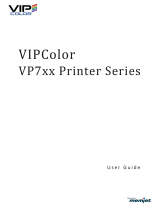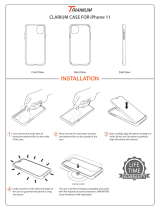
Bypass job start safety .......................................................................................................................................................... 83
Store the substrate ................................................................................................................................................................ 83
Substrate cannot be loaded successfully ........................................................................................................................... 83
Substrate is mispositioned ................................................................................................................................................... 84
Substrate has jammed .......................................................................................................................................................... 84
Substrate is deformed or wrinkled ...................................................................................................................................... 86
Substrate has shrunk or expanded ..................................................................................................................................... 87
Substrate has bow deformation .......................................................................................................................................... 88
Automatic cutter does not work .......................................................................................................................................... 88
Take-up reel substrate jam ................................................................................................................................................... 89
4 Substrate settings .................................................................................................................................................................................. 90
Substrate presets ................................................................................................................................................................... 91
Online search .......................................................................................................................................................................... 91
HP Media Locator ................................................................................................................................................................... 93
Generic presets ....................................................................................................................................................................... 94
Clone a substrate preset ....................................................................................................................................................... 94
Modify a substrate preset ..................................................................................................................................................... 95
Add a new substrate .............................................................................................................................................................. 96
Delete a substrate preset ................................................................................................................................................... 100
Faster printing ...................................................................................................................................................................... 101
Color calibration ................................................................................................................................................................... 101
Color consistency between dierent HP Latex 500 series printers ............................................................................ 103
Color emulation of other printer models ......................................................................................................................... 104
ICC proles ............................................................................................................................................................................. 106
Improve color consistency when tiling ............................................................................................................................. 108
5 Troubleshoot print-quality issues ..................................................................................................................................................... 110
General printing advice ....................................................................................................................................................... 111
Quick solutions application ................................................................................................................................................ 111
Improve print quality ........................................................................................................................................................... 112
Most-common print-quality problems ............................................................................................................................. 117
6 Ink system ............................................................................................................................................................................................. 125
HP Latex 560 ink system .................................................................................................................................................... 126
HP Latex 570 ink system .................................................................................................................................................... 133
7 Hardware maintenance ....................................................................................................................................................................... 145
Clean (recover) the printheads ........................................................................................................................................... 146
Align the printheads ............................................................................................................................................................ 146
Front panel recommends reseating or replacing a printhead ...................................................................................... 148
Replace a printhead ............................................................................................................................................................. 149
Cannot insert a printhead ................................................................................................................................................... 154
iv ENWW





















